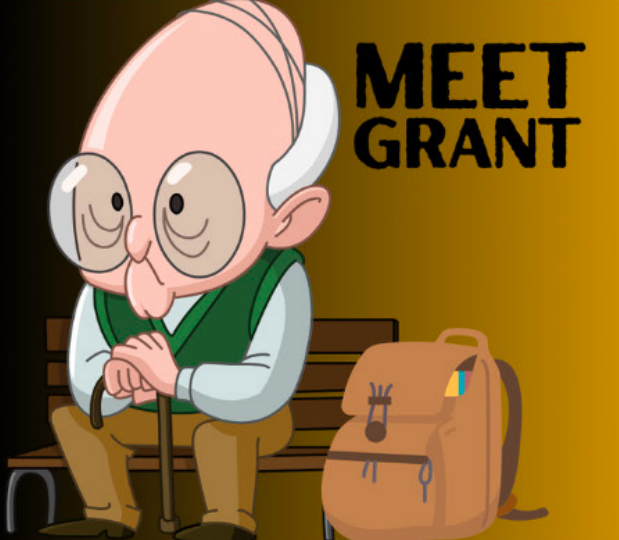
By: Denise Caruzzi, Pastor Andrew Kukla and Jodi Peterson-Stigers
Word on the Street Issue 45, July 2024
. . .
In the wake of the Supreme Court decision for Grants Pass allowing cities to ticket, fine, and arrest people without shelter options for sleeping in public spaces (or in their cars), we believe we need to change the conversation from one of generality to one that is more specific. For a glimpse into the lived reality of those most affected, we would like to introduce you to Grant- a fictional character with a story that is all too true.
Grant is a 67-year-old retiree living on a fixed social security income. He thought when he retired from his job as a school counselor, he would be able to live out the rest of his life comfortably on his hard-earned social security benefits.
But today, he couldn’t believe his new reality. Grant had just been forced out of his rental home of 15 years. The property owner had increased the rent so much over the past three years that Grant could no longer afford his monthly payments.
When Grant received his 30 day notice, he desperately searched for resources to help him stay in his home or find another affordable place to rent. But the emergency rental assistance during COVID had expired, and alternative rents in his hometown were too expensive for him, and Grant doesn’t have a social network he can lean into for housing support. So today, Grant will be homeless for the first time in his life.
With a heavy heart, Grant packs his essentials into a backpack and heads out onto the streets, hoping to find a safe place to land until he can get back on his feet. But recent changes in local policy have made this even more challenging than he could anticipate. The Supreme Court has just ruled with Grants Pass, Oregon–allowing local governments to criminalize those facing homelessness. Grant now has even fewer options for shelter and support.
Grant was familiar with one homeless shelter, so he headed there to see if he could stay for a few nights. When he arrived, he was met by a woman with a clipboard asking for his name and advising there were 20 names ahead of him on their waiting list. They would let him know by 8pm if he had a bed. He was offered a meal while he waited. At exactly 8pm he was informed that unfortunately there were no more spaces available that night.
Grant turned and walked out onto the street feeling scared, ashamed, and alone. He walked to his favorite park and sat down on a bench. Having nowhere else to go, he eventually laid down on the park bench using his backpack as a pillow and fell asleep. He woke abruptly to an aggressive tap on the shoulder from a uniformed officer informing him he was not allowed to sleep in the park or use his backpack as a pillow. The officer wrote him a ticket and told him to move on.
Where is Grant supposed to go? Not only did the ticket not solve his homelessness, he now has to figure out how to navigate a complicated criminal legal system and get the money to pay this fine (because if he doesn’t he could be jailed). Grant has never been in jail before.
Jodi Peterson-Stigers, Executive Director of Interfaith Sanctuary says “As you consider how this ruling will impact the unhoused population in your city, remember, we all know Grant. Grant is your cousin. Grant is your friend. Grant is you on a future day you can’t yet foresee. Grant lives in our shelter. Some nights Grant lives on the street because there was no shelter bed available that night. We are all Grant. And what Grant needs is access to affordable housing. Neither ticketing nor hand-wringing about tickets will solve his need. He needs housing, and we need to provide it.”
The Grants Pass decision has stripped away vital protections of the prior ruling made by the 9th Circuit Court of Appeals in the Martin v. Boise case. It can make it even harder for people like Grant to find safe and stable housing. Sadly, Grant is part of the fastest growing group of those experiencing homelessness in the U.S. This older, vulnerable population is now even more at risk, and the decision highlights the urgent need for renewed support and intervention in this escalating crisis of homelessness in our communities.
Our Path Home, the public-private partnership working to make homelessness in Ada County rare, brief, and a singular experience, responded to the overturning of Grants Pass by assuring that The City of Boise and all partners in this continuum of care will maintain their commitment. It is crucial that we remain steadfast, collaborating with our partners who are on the frontlines of this work:
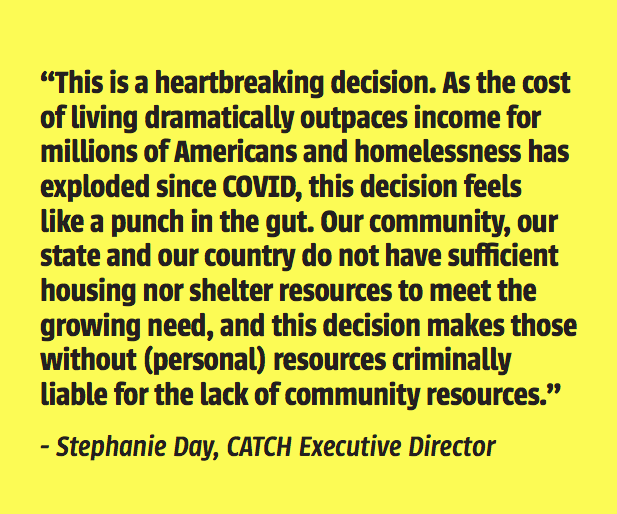
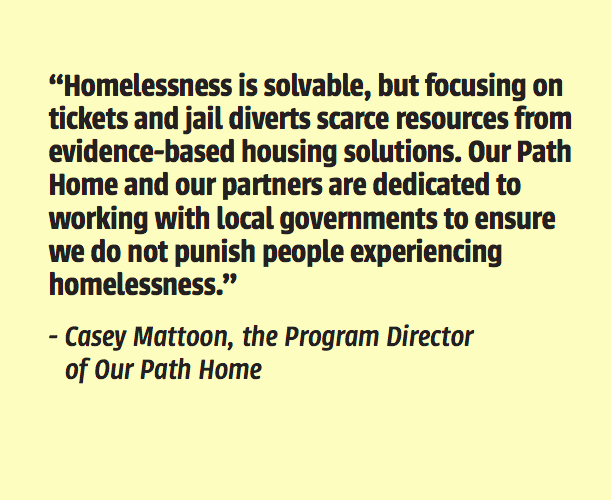
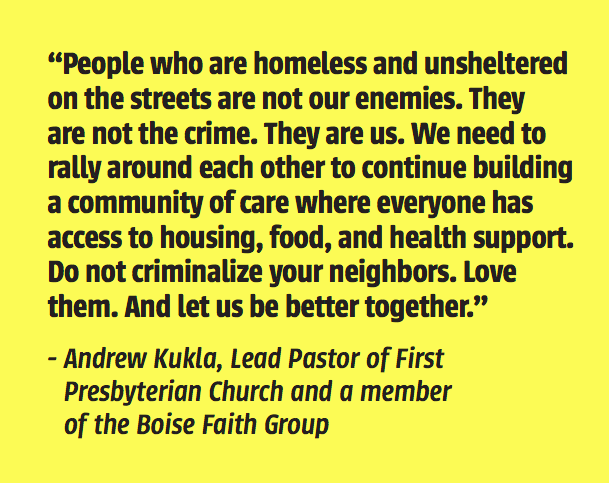
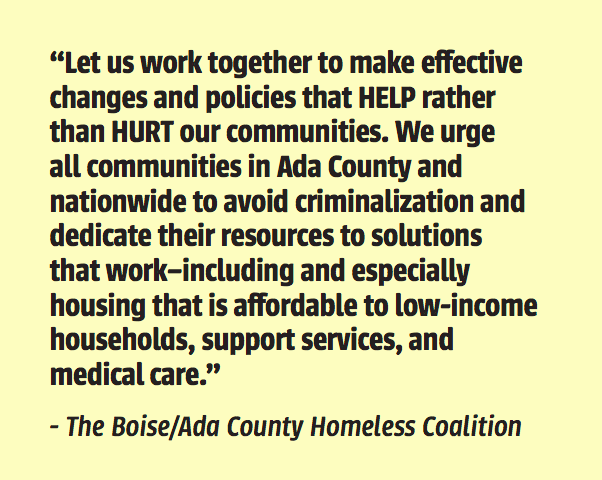
Our Path Home (OPH) will be hosting a community conversation in the coming months to discuss the implications of this ruling. To stay informed and participate in the conversation, consider becoming a member of Our Path Home. For more information, visit ourpathhome.org or email info@oph.org.
